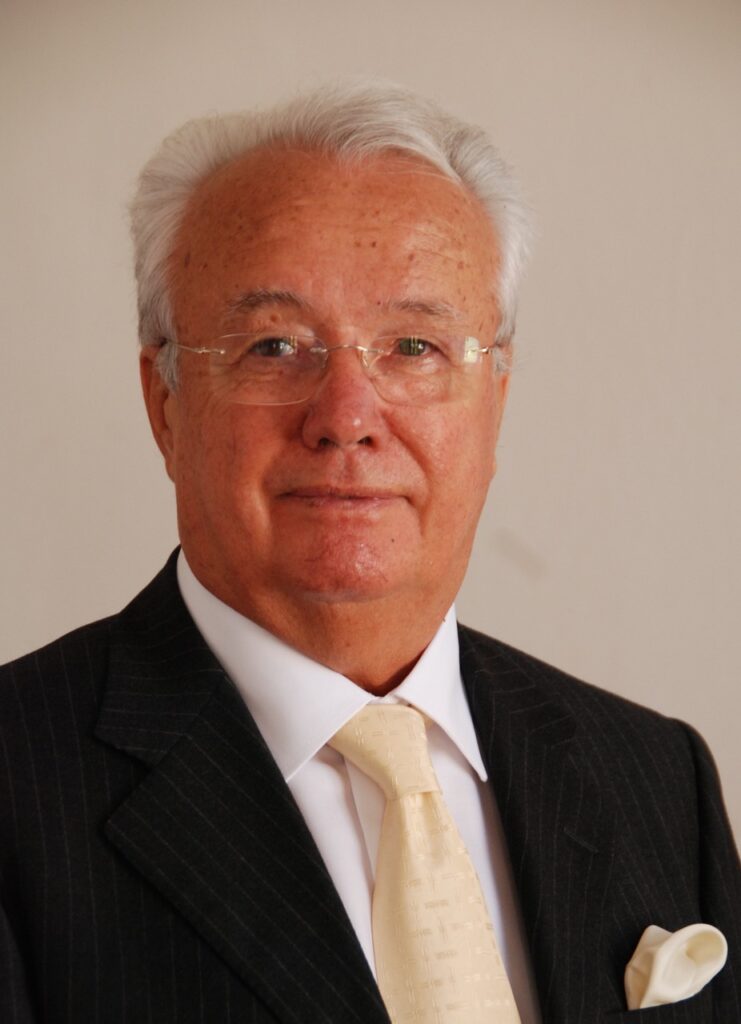Every nation and every age is standing on the shoulders of the past.
Mihai Eminescu, Romanian poet
I was very surprised when the United Nations Secretary-General Kurt Waldheim appointed me as the director of a newly established UN research institute on disarmament. I was a senior officer in the UN Center for Disarmament Affairs at the time and I did not apply, nor did I have the formal backing of my country, Romania. But I relished the opportunity and sought to harness the solidarity and the spirit in favor of disarmament that was so strong in the 1980s.
At that time, the Cold War still lingered as a perpetual fog over the global stage and the arms race was experiencing a heightened groundswell after détente waned between the United States and Soviet Union in the late 1970s. Because of the Cold War, the world was focused on weapons and their dangers. The UN Special Session on Disarmament demonstrated a clear interest in disarmament and the genesis of a United Nations entity dedicated to the research of disarmament ultimately emerged from these dialogues.
The UN Institute for Disarmament Research (UNIDIR) began in fits and starts. The Institute was established in Geneva in 1980. With no funding or infrastructure, the fledgling Institute struggled to establish itself. Although France contributed a Deputy Director, there were several States which were opposed to UNIDIR securing funding from the UN regular budget, and our financial situation was a challenge. We never had more than ten people at the Institute during my tenure.
When I took office on 1 October 1980, the questions I asked myself were what happens in the world in the field of disarmament research and what differentiates a United Nations institute from other such institutes in the world. Therefore, the first project of the Institute was an examination of the field in which we worked. UNIDIR initiated a vast process of monitoring the field of disarmament globally, and the result of this constituted the volume Répertoire de la Recherche sur le Désarmement. This state of-the-art-of disarmament research included major UN documents dedicated to the disarmament process, names of major research centers in the field of disarmament, as well as specialized journals, articles and books dedicated to disarmament issues. We also tried to encourage cooperation and collaboration between the various research institutes in the field of disarmament and with such an objective in mind, UNIDIR convened a conference of research institutes that took place at the Palace of Nations in Geneva.
The establishment of a research institute dedicated to disarmament was timely, not only in the world of diplomacy and international relations, but also among the youth and civil society. The public dialogue about disarmament and arms control, particularly within the nuclear dimension, was characterized by a tremendous amount of fear and uncertainty. It was only during the 1970s and 80s that this fear evolved into interest, and many of these dialogues stemmed from youth and activist movements. Community organizers and activists were central in bringing these issues into mainstream discourse and this environment helped the disarmament agenda garner momentum.
During this time, the debate about the deployment of medium range weapons in Europe dominated the landscape and many predicted the imminence of nuclear war. Considering the nature of arms control dialogue at the time, the choice to assess nuclear risk in Europe, amidst this discourse, proved to be an act of courage. Our first publication in 1982, “Risks of Unintentional Nuclear War” by Daniel Frei with the collaboration of Christian Catrina was among the first of its kind. It was and remains an intellectually challenging and compelling topic. Another significant work of UNIDIR was “Perceived Images. U.S. and Soviet Assumptions and Perceptions in Disarmament,” also authored by Frei and published in 1986. The book highlights the ideological stream of perceptions of world politics, and contrasts this against the major mistrust that dominated the disarmament negotiations between the United States and the Soviet Union.
I don’t like to remember, but if I must recall how 27 December 1985 transformed my life, I would say it made me a better and more resilient person. That day, while still Director of the Institute, began what would be over two years of detention in my own country. The ambassador of Romania phoned me and said he had received a cable from foreign ministry inviting me for one or two days of consultations on a disarmament initiative by the president of the country. Upon arrival in Bucharest, I realized I was being followed and ultimately, I was informed that I would not be permitted to leave the country. Many heads of state and government, the United Nations Secretary General and UN staff, as well as NGOs and the research community mobilized to secure my release. A whole 1987 meeting of the First Committee of the Gen. Assembly was devoted to this case. Ten years later in the First Committee, the representative of Romania finally acknowledged that my detention was politically motivated.
I returned to Geneva after I was released and was able to reflect on the experience that, although difficult, made me stronger. It proved to me that there is a power in this world that goes beyond the physical, which is the power of human solidarity. In many ways this is reflective of the challenging dynamics present in security and disarmament issues: the power of people, the strength of mobilization and solidarity, but equally the unpredictability of States and institutions. What we try to do through multilateralism in arms control, disarmament, and nonproliferation is to shape a rules-based order that provides this predictability and, as a result, ensures human security.
There are many parallels between UNIDIR’s early days and UNIDIR today. The Institute has always been about facilitating a more global conversation. A main focal point for UNIDIR when I was Director was to support multilateral discussions on disarmament, particularly through the Conference on Disarmament. This is still true of the Institute today. There is often discussion around confidence-building measures and what this looks like between states which often cannot surmount geopolitical impasses in order to establish a baseline of trust. But confidence must be made, and political will must be chosen. Significant strides in arms control result from accumulations over time and smaller states need the involvement and voice of larger states. The Conference on Disarmament offers room for discussion over these kinds of initiatives, whether they take advantage of this or not, and that is a unique and rare opportunity.
My advice to any UNIDIR Director would be to go back to the resolution that created the Institute. I believe that if you read it, you will discover ideas for what to do and how to do it. Today new threats, technologies, and actors are complicating international security. Disarmament is perhaps more important now than it ever has been, and by examining the spirit and the letter of the statue, we can discover what pursuing disarmament together might look like for the future.
Ambassador Liviu Bota is a former Romanian diplomat and senior UN official. He was the first Director of UNIDIR serving from 1980-1987.

